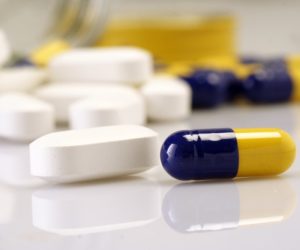How to Prevent Pain Killer Addiction

Find out how to prevent painkiller addiction before you develop a problem
If you or a loved one is suffering from pain that requires medical intervention, it is a good idea to learn how to prevent pain killer addiction before you start treatment. The fear that you may become addicted to pain killers is a legitimate concern for anyone who is prescribed opiates or narcotic analgesics. Addiction to opiate painkillers has become an epidemic in the United States, largely fueled by individuals who were prescribed painkillers by their physician. The National Institute for Drug Abuse estimates that as many as one in four patients who are prescribed opiates will end up struggling with painkiller addiction. This astronomical addiction rate demonstrates why it so important to take precautions to prevent painkiller addiction.
Opiate painkillers are some of the most addictive medications currently on the market. These medications include codeine, morphine, oxycodone (OxyContin), hydrocodone (Vicodin), hydromorphone (Dilaudid), meperidine (Demerol), and fentanyl. The side effects of opiate addiction can be extremely unpleasant and in some cases, even life-threatening. Addicted individual begin to experience painkiller addiction withdrawal symptoms when they do not take medication on a regular schedule. These withdrawal symptoms can include nausea, muscle cramps, aches, increased pain, lack of concentration, irritation, anxiety, seizures, and intense cravings. If you or someone you love suffers a painful injury or illness, employing the following strategies may help you avoid the perils of pain killer addiction.
Try non-narcotic medications first
The only guaranteed way to prevent pain killer addiction is to avoid taking these medications in the first place. Since narcotic opioids have the highest addiction rates of all pain medications, they should be taken if you and your doctor find that your pain cannot be relieved by any other method. Non-narcotic pain medicines include
- Anti-inflammatory medications (NSAIDs) such as Aleve, Naproxen, and ibuprofen
- Acetaminophen
- Topical medications such as capsaicin or Lidocaine patches (Lidoderm)
- Tramadol (Ultram, Ultracet)
Try alternative treatments to relive your pain
This is particularly important if you suffer from intractable, chronic pain that lingers for more than a few weeks. The longer you take painkillers, the more likely it is that you will develop an addiction. Some alternative therapies that may provide relief include acupuncture and acupressure, meditation, exercising, application of cold or heat, and taking non-narcotic painkillers.
Avoid using other drugs and intoxicating substances
Certain medications and substances can enhance the intoxication or euphoric effect of prescription painkillers and increase the likelihood that you will become addicted or experience a fatal overdose. The substances to avoid include:
- Alcohol
- Benzodiazepines, such as Valium, Xanax, and Ativan
- Muscle relaxants, including Flexeril and Soma
- Hypnotics (sleeping aids) such as Ambien and Lunesta
Watch for signs that you are becoming addicted
If your pain can only be relieved by opioids painkillers, be alert for the most common painkiller addiction symptoms. They include:
- Developing tolerance – needing to take more medication to achieve the same relief
- Physical dependence – experiencing withdrawal symptoms when your medication wears off
- Obsessing about the medication – if you begin to constantly think about taking the pain killers, anxiously watching the clock until you can take the next dose
- Ignoring dosing instructions –taking pain killers in larger quantities or more frequently than prescribed
- Behavior changes – lying, manipulating, or stealing to obtain more pain killers
- Unnecessary dosing – continuing to take pain killers even if your pain has decreased
If you notice the signs of pain killer addiction
If you begin to experience any of the above signs of pain killer addiction, you should seek help from an addiction specialist at once. An addiction rehab treatment center can provide medically supervised detox, where you can receive medications to lessen the pains of withdrawal. Through cognitive behavioral therapy, and other strategies, you can learn relapse prevention strategies that will help you overcome your addiction to painkillers and enjoy a drug-free future.
If you or a loved one needs help with abuse and/or treatment, please call the WhiteSands Treatment at (877) 855-3470. Our addiction specialists can assess your recovery needs and help you get the addiction treatment that provides the best chance for your long-term recovery.
